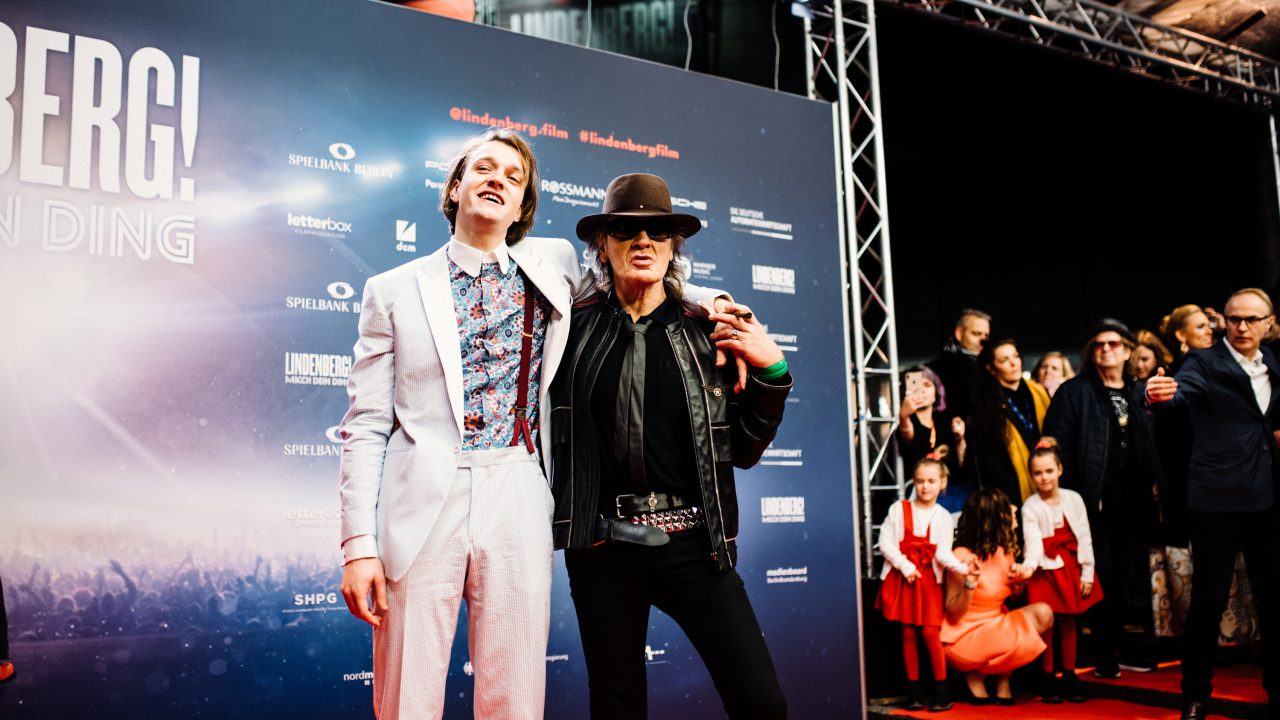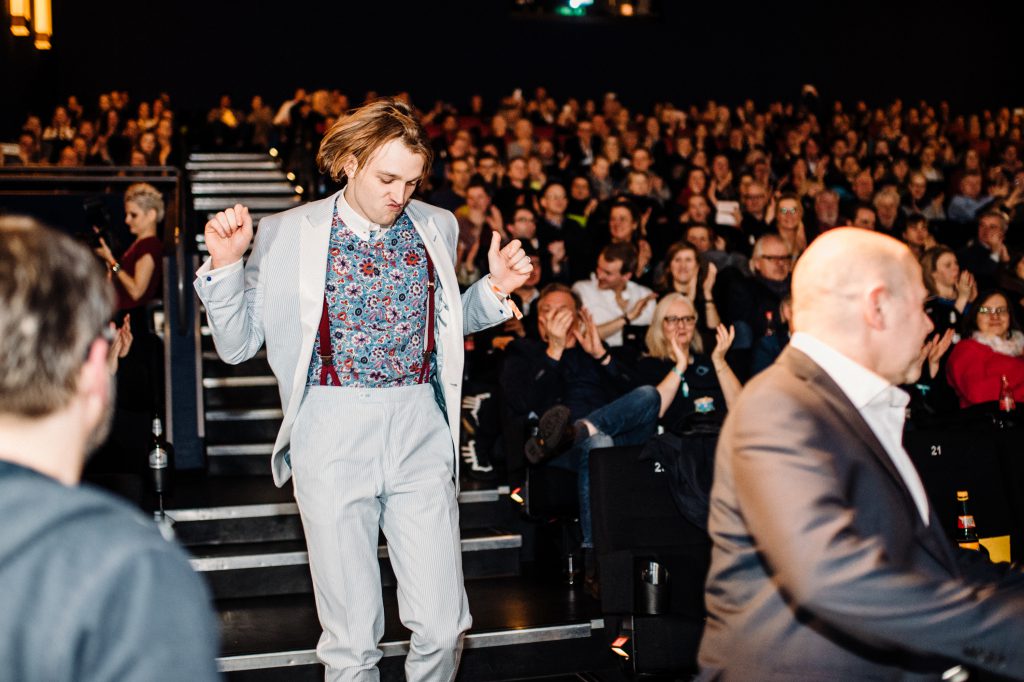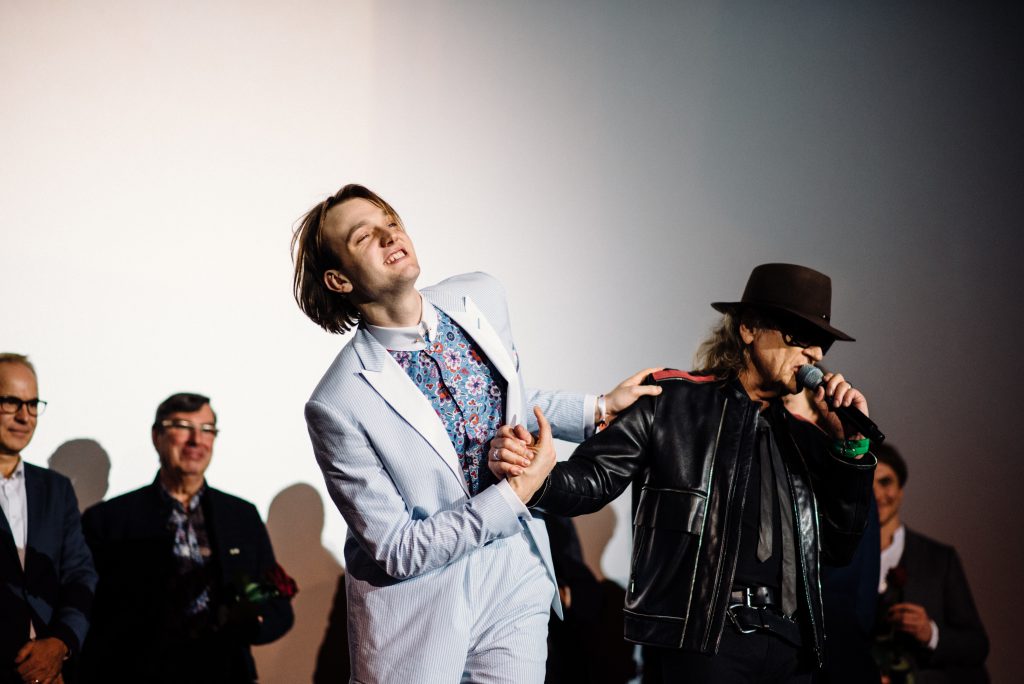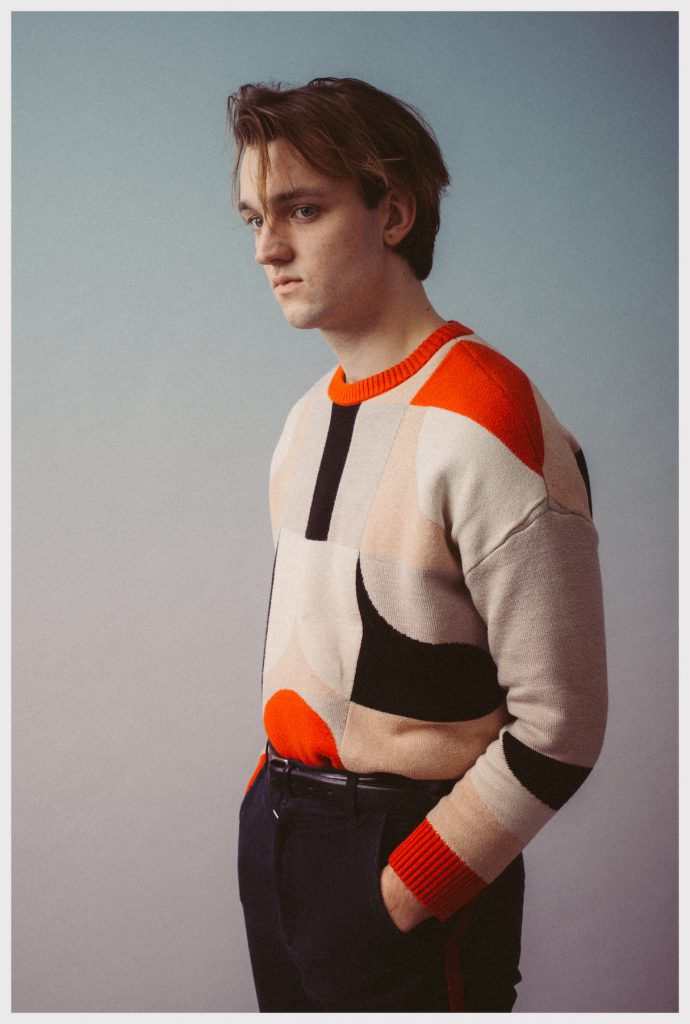
In the Cinemaxx theater on Dammtor, DCM and nearly 3000 guests, cast and crew had gathered in eager anticipation of legendary Udo Lindenberg’s grand entrance. And after the world premiere, there were more stops in Essen, Berlin, Hanover, Oldenburg, Bremen, Leipzig, Frankfurt, München and Rostock.
Udo was there at nearly all of them, supporting lead actor Jan Bülow, who skillfully embodied the rockstar and who wasn’t used to big stage appearances in front of cinema audiences at that point. The film took over seven years until its long awaited premiere. A long way to go, and enough time for the up-and-coming actor to gradually grow into the role of “Udo Lindenberg”.

I knew that he’s a German music legend, for sure. An important man and musician. A German luminary you just can’t ignore. I also thought that he moved things forward and that he was a kind of German-German ambassador. I even think we learned about Udo at school. I also thought he was a strange kind of star: an odd fish with his cigar, hat, sunglasses and green socks – and with his die-hard fans. Almost like someone from another age and yet timeless at the same time.
Definitely. I was damn nervous. As nervous as I was when I first appeared on stage in Zurich, and that wasn’t just any role, it was Hamlet. In any case, I thought about it a great deal and I was incredibly scared to do something wrong or perform it in the wrong way. But Hermine Huntgeburth and the team really helped me get over my nerves and as the shoot went on, it got better every day. I was never completely free of it, but by the end I was a bit calmer. It’s an incredible challenge, not just to play someone real but also someone who’s still alive. You don’t want to do anything wrong, but at the same time you can’t let yourself be intimidated by it too much.
I got to understand Udo in lots of different ways. I met him personally, I worked through the script, I watched performances, I read articles and books about him, I really analyzed his life. I listened to his music and took a closer look at the lyrics. That all helped me to get nearer to him, but I can’t claim that I really know and understand him, even now. I’m still getting to know him.
The first time we met I was incredibly nervous beforehand and it didn’t go completely, even though we we were on first name times from the get-go and he greeted me with a joke that I was playing his “epic hero”. There’s hardly anyone that Udo isn’t on first name terms with. The nice thing was that we just talked – about music, about Bruce Springsteen, about Miles Davis, about God, about the world, and inbetween about him. He answered a few questions I had, but during the conversation it became clear to me that it wouldn’t be the answers or any precise information about any childhood experiences that would be important, but rather just getting a feeling for him.
As well as reading books about him and listening to his music, at the beginning I also tried to learn the things that make him special. His voice, his way of singing. I even learned to play the drums. I wanted to get as close to Udo as possible and did all sorts of things. But we didn’t want a carbon copy of Udo – Hermine Huntgeburth was clear about that. If it’s too much of a copy, it risks becoming a caricature. In short, with a lot of effort and a lot of research – you have to find your way through what’s needed somehow. You can’t ask yourself all the time, “How did Udo do this, how did Udo do that?” You just have to go with the flow and go on the journey as if it was your own. It’s a bit like getting onto a rollercoaster, you don’t know what’s behind the next curve.
Essentially, it was like the role itself. At the beginning I tried to get as close to Udo as possible. But Hermine and Udo’s producers all said, I should just do it my own way. So that it sounds good. Respecting the original, but also with a certain gutsiness. With the songs we also tried to make sure that they weren’t copying Udo but interpreting him. And don’t forget, the film doesn’t show Udo as we all know him, but rather how he became Udo Lindenberg, how he became an icon.


WE WANTED TO SHOW THE MAN. AND THIS MAN JUST HAPPENS TO BE SOMEONE WHO ALWAYS DOES HIS OWN THING.
Jan Bülow